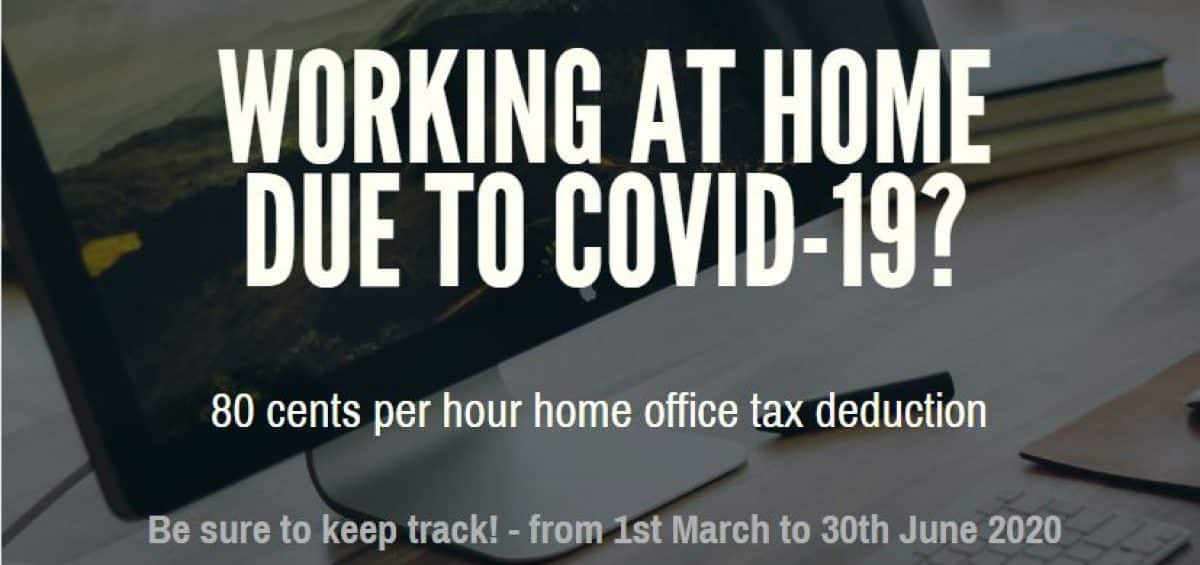Recently announced by the Australian Taxation Office is a remodel to a concept many taxpayers will already be familiar with; Home office running costs.
Its purpose is to simplify and increase a taxpayers right to a deduction for working from home as result of the COVID-19 virus while performing genuine work duties.
The changes are directed at the “set rate method” which will see a rate of 80 cents per hour come into effect from the period 1 March 2020 to 30 June 2020, an increase from 52c per hour.
The 80c per hour is set to cover:
- Electricity expenses
- Cleaning costs of a dedicated workspace
- Phone and Internet expenses
- Computer consumables including printing/stationery
- Depreciation on office equipment
The ATO have temporarily removed the requirement that a taxpayer must have a dedicated work area to be eligible to claim the 80c per hour and that multiple people in the same residence can individually claim the 80c per hour deduction.
The only recording requirement is that the taxpayer must keep a record of the number of hours worked during the period 1 March 2020 to 30 June 2020 and can include time sheets, notes, rosters or diary entries.
Prior to 1 March 2020 any home office running costs incurred will still need to be substantiated and apportioned to be an allowable deduction.
Not all taxpayers stand to benefit from this newly revised rate as existing arrangements for home office running costs may outweigh the benefit in which the 80c per hour has to offer and will be determined on a case by case basis.
Adam Kitching – OP Accountant







